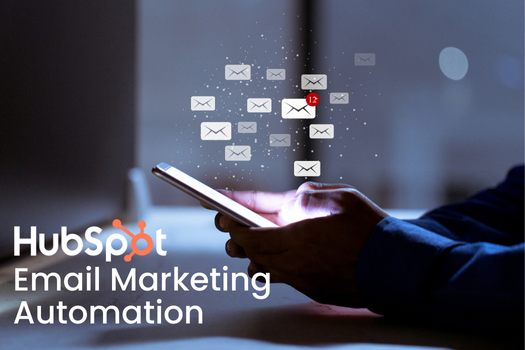Marketing automation involves using software to streamline customer communication. This can help organizations save time and maintain brand visibility, even in a competitive market.
This is where the Marketing Automation Manager comes into play.
This role is essential for connecting technology with marketing strategy to ensure that businesses reach their target audiences in a personalized and scalable manner.
Automating your company's marketing is essential for growth. It enables sales reps to concentrate on selling rather than sending follow-up emails and frees up a recruiter's time.
Overall, automating marketing efforts can optimize workflows and expand your outreach.
What is a Marketing Automation Manager?
A Marketing Automation Manager oversees implementing, managing, and optimizing an organization's marketing automation tools and strategies.
Their role revolves around utilizing technology to streamline marketing processes, enhance lead generation and nurturing, and boost overall marketing effectiveness.
Responsibilities typically include designing and executing automated marketing campaigns through marketing automation platforms, developing lead nurturing strategies to guide leads through the sales funnel, and analyzing campaign performance to refine strategy for better outcomes.
Collaborating closely with marketing and sales teams is essential to align marketing automation efforts with overarching business objectives by providing the best marketing automation services .
Additionally, tasks may involve managing customer segmentation and personalization initiatives, integrating marketing automation systems with other tools like CRM platforms, and upholding data quality within the system.
What is the Role of a Marketing Automation Manager?
A Marketing Automation Manager coordinates and manages a company’s marketing automation systems.
By automating these processes, businesses can ensure that they stay top of mind with their customers, even when numerous other demands are on their attention.
Certainly! Let's expand on the responsibilities of a Marketing Automation Manager:
Designing and Implementing Automated Marketing Campaigns
Creating workflows and automation sequences to engage leads and customers at different customer journey stages.
Setting up trigger-based campaigns to deliver personalized content based on user interactions or behaviors.
A/B testing different elements of automated campaigns to optimize performance.
Developing and Managing Lead Nurturing Strategies
Developing lead scoring models to prioritize and qualify leads for sales teams.
Implementing drip campaigns to educate, engage, and convert leads into customers.
Continuously refining lead nurturing strategies based on data and feedback.
Analyzing Campaign Performance
Monitoring key performance metrics (e.g., open rates, click-through rates, conversion rates) to assess the effectiveness of campaigns.
Using data analytics and reporting tools to track ROI and make data-driven decisions.
Conducting A/B testing and experiments to identify what works best for different segments.
Collaborating with Marketing and Sales Teams
Aligning marketing automation efforts with overall marketing and sales strategies.
Working closely with the sales team to ensure smooth lead handoff and alignment on lead qualification criteria.
Providing insights and recommendations to improve lead generation and conversion rates.
Managing Customer Segmentation and Personalization
Segmenting the audience based on demographics, behaviors, and interests to deliver targeted and personalized content.
Implementing dynamic content and personalization tactics to enhance the user experience.
Using marketing automation tools to automate personalized communications at scale.
Integrating Marketing Automation with Other Systems
Integrating marketing automation platforms with CRM systems, email service providers, and other tools to streamline data flow and processes.
Ensuring data consistency and accuracy across integrated systems.
Leveraging APIs and automation features to create seamless workflows between different tools.
Monitoring and Maintaining Data Quality
Regularly audit and clean up contact lists to ensure data hygiene.
Implementing data governance practices to maintain data accuracy and compliance with regulations.
Troubleshooting data integration issues and ensuring data integrity within the marketing automation system.
Staying Current on Industry Trends and Best Practices
Keeping up with the latest trends, technologies, and best practices in marketing automation.
Attending industry conferences, webinars, and training sessions to enhance skills and knowledge.
Continuously experimenting with new features and strategies to stay ahead of the competition.
By effectively fulfilling these responsibilities, a Marketing Automation Manager can drive targeted engagement, nurture leads, optimize conversions, and ultimately contribute to the overall success of an organization's marketing efforts.
Let’s break through your revenue hurdles
We find your primary growth blockers, build expert-led strategies, and provide custom data-driven solutions to help you hit your revenue goals.
Skills All Marketing Automation Managers Need
A Marketing Automation Manager must clearly understand the business’s goals and how automation can help achieve them.
Here are some of the key skills that are essential for anyone in this position:
Strategic Vision
A Marketing Automation Manager must clearly understand the business’s goals and how automation can help achieve them.
This requires seeing the big picture and developing strategies that align marketing efforts with overall business objectives.
They must also anticipate trends, adapt to market changes, and constantly innovate to stay ahead of the competition.
Creativity
While much of the work involves technical tasks, creativity is still crucial. Marketing Automation Managers must be creative to create the right messages that appeal to the target markets.
They often collaborate with designers and copywriters to create campaigns that are not only automated but also engaging and personalized.
This creative flair ensures marketing efforts stand out in a crowded digital landscape.
Technical Proficiency
Technical knowledge is important when handling the various tools and platforms used in marketing automation.
This includes understanding how to set up and manage automated workflows , integrate different systems (such as CRM and email marketing automation platforms), and analyze data to measure campaign success.
A Marketing Automation Manager should be comfortable working with various technologies, from content management systems to analytics platforms.
Analytical Skills
Other essential skills include analyzing data and deriving actionable insights. Marketing Automation Managers must regularly review campaign performance, identify trends, and adjust strategies accordingly.
This requires a deep understanding of conversion rates, customer engagement levels, and ROI.
They can make necessary changes that optimize marketing efforts and drive business growth by being data-driven.
Collaboration and Communication
Given the role's cross-functional nature, Marketing Automation Managers need strong collaboration skills.
They work closely with various teams, including sales, IT, and creative departments, to ensure that automation strategies align with broader company goals.
Effective communication is key to managing these relationships and ensuring everyone is on the same page.
Additional Role Responsibilities and Skills Needed
The Marketing Automation Manager role is crucial in assisting companies in acquiring a more profound comprehension of potential clients' behaviors, thoughts, actions, and content interests.
Beyond the core skills mentioned above, a Marketing Automation Manager often has additional responsibilities that require a broader skill set. These include:
- Having business acumen to develop marketing strategies.
- Understanding consumer psychology and behavior.
- Possessing strong collaboration skills to work with different departments.
- Demonstrating project management skills to improve client engagement.
- Being a digital expert in web, email, social media, smartphones, and other platforms
- Having exceptional written and verbal communication skills.
- Being tech-savvy and organized to progress projects without relying solely on technology.
- Being flexible to adapt to changing consumer behavior.
- Being analytical and driven by data metrics.
The Marketing Automation Manager needs to excel in both technology and interpersonal skills.
This role is obvious and may interact with numerous departments, so the individual must be a team player and stay updated on the latest marketing software tools.
Turn website into high paying customers
We drive business growth by optimizing every inbound channel to attract and convert high-quality clients for you
Suggested Software Proficiency for Marketing Automation Specialists
To excel in this role, a Marketing Automation Manager must be proficient in various software tools. These include:
Marketing Automation Platforms: Tools like Marketo, HubSpot, Pardot, and Eloqua are essential for automating various aspects of marketing campaigns. A Marketing Automation Manager should be well-versed in setting up workflows, segmenting audiences, and measuring campaign performance within these platforms.
Customer Relationship Management (CRM) Software: Integration between marketing automation platforms and CRM systems is crucial for managing leads and tracking customer interactions. A Marketing Automation Manager should know how to use these systems to ensure marketing efforts align with sales strategies.
Analytics Tools: Understanding how to use analytics tools like Google Analytics, Optimizely, or Mixpanel is essential for measuring the success of marketing campaigns. These tools offer detailed insights into customer behavior, campaign performance, and overall ROI, allowing the Marketing Automation Manager to make data-driven decisions.
Social Media Management Tools: Tools like Hootsuite, Sprout Social, or Buffer help automate social media posts and track engagement. Proficiency in these tools helps a Marketing Automation Manager maintain a consistent presence across multiple platforms and track the impact of social media campaigns.
Email Marketing Software: Managing email campaigns is a key aspect of marketing automation. Tools like Mailchimp, Constant Contact, or SendGrid allow Marketing Automation Managers to create and automate email campaigns, segment lists, and track open and click-through rates.
However, the role of a Marketing Automation Manager goes beyond simply setting up these tools. They must also develop strategies that leverage automation to achieve broader business goals. This could include increasing lead generation, improving customer retention, and enhancing the overall customer experience.
The Marketing Automation Manager uses technology to make marketing efforts more efficient, effective, and measurable.
Conclusion
A Marketing Automation Manager role is crucial for companies aiming to improve their marketing strategies and achieve better results.
These professionals use strategic thinking, innovation, and technology to assist organizations in effectively achieving their objectives.
As the marketing world continues to evolve, the demand for skilled Marketing Automation Managers is expected to increase, underlining their importance in today's business environment.
As a Marketing Automation Manager, our expertise lies in assisting companies in maximizing the potential of lead management automation.
We offer tailored solutions to suit your requirements and seamlessly integrate with your current systems to produce measurable outcomes.
To enhance your lead management processes, contact us at Saffron Edge today to arrange a consultation. Let us demonstrate how our services can revolutionize your operations.
Get The Marketing Automation Toolkit
Frequently Asked Questions
What does a Marketing Automation Manager do?
Marketing Automation Manager is responsible for implementing and managing marketing automation tools to streamline marketing processes, improve efficiency, and enhance customer engagement. They also develop strategies that align with business goals and analyze data to measure campaign success.
What skills are essential for a Marketing Automation Manager?
Key skills include strategic thinking, creativity, technical proficiency, analytical skills, collaboration, and communication. Additional skills such as project management, business acumen, and adaptability are also necessary.
What software tools should a Marketing Automation Manager be proficient in?
Marketing Automation Managers should be familiar with tools such as Marketo and HubSpot for marketing, Salesforce for CRM, Google Analytics for analytics, Hootsuite for social media management, and Mailchimp for email marketing.
Why is the role of a Marketing Automation Manager important?
The position is essential as it enables companies to maximize their marketing endeavors, maintain uniformity across various platforms, and leverage data-driven findings to enhance customer interaction and accomplish corporate objectives.
Related Blogs
We explore and publish the latest & most underrated content before it becomes a trend.
4 min read
The Ultimate Guide to HubSpot Email Marketing Automation To Maximize Business Growth
By Sabah Noor
Subscribe to Saffron Edge Newsletter!

Get The Marketing Automation Toolkit










